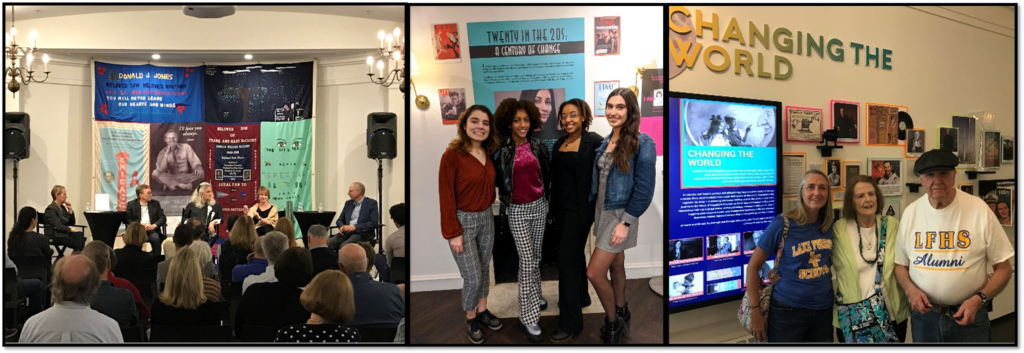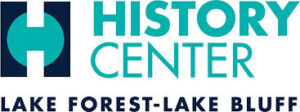Three Questions: Q&A with Carol Summerfield, executive director, the History Center of Lake Forest-Lake Bluff

The Project…
“In the Shadow of Wealth: The Working Class of the North Shore”
Location: Lake Forest, Illinois
“In the Shadow of Wealth” is a multi-site exhibit which will cover the settlement period of the mid-1800s to current day. It will identify the themes, stories, and archival materials in the HCLFLB collections to cover the wide-ranging demographic profiles of the working-class populations of Chicago’s North Shore communities.
The Organization…
 History Center of Lake Forest-Lake Bluff
History Center of Lake Forest-Lake Bluff
The History Center’s mission connects people and inspires curiosity by exhibiting, preserving, sharing and celebrating history. The History Center showcases the history of community development, including socioeconomic change, ethnographic and demographic drift, and suburbanization. Both the museum and the archives are free, with extensive use by people locally, regionally, and nationally. Their broad online collection provides rich access to thousands of items to the public.
Follow @lflbhistory: Website | Twitter
The Q&A…
Q1: How do you see the arts/culture/humanities as being essential?
Carol Summerfield: Our mission is to ensure that what we do helps people better understand themselves, their community, and the place they live. For a history museum, this focus on the past through the present is critical. If we think of time as an arc with two end points, then the starting point is behind us and the end point is out ahead. This point we stand on right now, that’s where we can adjust the trajectory. We need to know the past and connect it to the future, to better understand the impact of our choices.
The History Center is keenly focused on helping our program attendees, our museum visitors, and our online researchers all make deeper connections to history, to better understand that trajectory as it relates to their community, however they define community.
Q2: What is the most important thing people should know about your work?
Carol Summerfield: If you have never been to Lake Forest and you aren’t planning on coming back, the museum still helps you understand your community better and think about all the questions we pose in our space. We want our visitors and program attendees to reflect on how the fabric of each community is shaped and shifted by the land, the people and the priorities they bring.
Q3: Who makes your work possible?
Carol Summerfield: We have an amazing and supportive roster of members and donors. And in the past few years, we’ve been able to expand our membership beyond the boundaries of Lake Forest and Lake Bluff as we’ve connected our history to the larger American experience. We’ve been fortunate to get grant funding from Illinois Humanities, the Hunter Family Foundation, the Searle Family Foundation, and the Grainger Foundation to help expand programming and exhibits. We’ve also had some wonderful funders who support our expanded educational work, in developing free curricular guides and online materials for students across the region.
Anything else you’d like to add?
Carol Summerfield: Beyond the value of the narrative that the Illinois Humanities grant is covering, we are excited to expand the ability of a consortium of museums and cultural institutions working together. That momentum of the collaboration is critical to our collective success. It is my strong belief that cultural institutions don’t compete with each other, they are peers and partners. The public benefits from us all.
About The Illinois Humanities Grantee Partner Spotlight
Illinois Humanities highlights the work of our Community Grants program partners through our “Grantee Spotlight.” It shines the light on our grantee partner’s work, offering details about the organization and the funded project, as well as a Q&A with a team member at the organization. More: ILHumanities.org/Spotlight
About Illinois Humanities
Illinois Humanities, the Illinois affiliate of the National Endowment for the Humanities, is a statewide nonprofit organization that activates the humanities through free public programs, grants, and educational opportunities that foster reflection, spark conversation, build community and strengthen civic engagement. We provide free, high-quality humanities experiences throughout Illinois, particularly for communities of color, individuals living on low incomes, counties and towns in rural areas, small arts and cultural organizations, and communities highly impacted by mass incarceration. Founded in 1974, Illinois Humanities is supported by state, federal, and private funds.
Learn more at ilhumanities.org and on Facebook, Twitter, Instagram, and LinkedIn @ILHumanities.